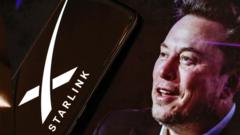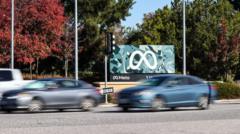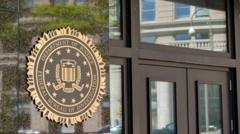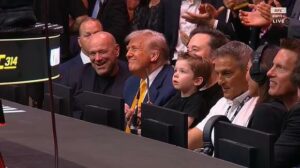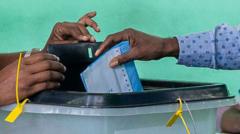Elon Musk's recent 74-minute interview with AfD co-leader Alice Weidel has drawn attention for its endorsement of the far-right party, sparking controversy and political debate in Germany.
Musk Joins Forces with German Far-Right Leader Weidel in Controversial Interview
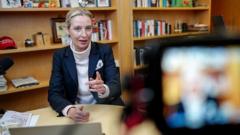
Musk Joins Forces with German Far-Right Leader Weidel in Controversial Interview
Elon Musk endorses AfD's Alice Weidel in live chat, stirring political tension in Germany.
Elon Musk took a bold step into European politics on Thursday, hosting a live interview with Alice Weidel, the co-leader of Germany's far-right Alternative für Deutschland (AfD) party. The 74-minute discussion, which took place via a virtual link from Weidel's Berlin office, covered a wide array of topics including energy policy, bureaucracy, and even Adolf Hitler, with Musk urging Germans to support the AfD in upcoming elections.
This latest engagement is part of Musk's ongoing controversial involvement in political matters outside the United States. His advocacy for the AfD has raised questions about foreign influence in German politics, especially as the country faces a snap election on February 23.
Expressing her backing for the US president-elect, Weidel attempted to position her party as "conservative" and "libertarian," despite criticism from mainstream media which paints the AfD as extremist. Multiple investigations have highlighted connections between the party and far-right networks, raising concerns over its ideology.
During their chat, Weidel controversially characterized Adolf Hitler as a "communist" while further redefining his political stance, even labeling him an "antisemitic socialist." The conversation occasionally turned lighter as Musk and Weidel shared chuckles over topics like Germany's bureaucracy and the abandonment of nuclear power. A moment of curiosity arose when Weidel inquired about Musk's beliefs in God, to which he responded that he is open to the possibility.
Polls indicate that the AfD is currently second in popularity among German parties, although it faces challenges in forming a coalition government due to its contentious reputation. Musk's comments about Weidel, calling her the "leading candidate to run Germany," and his dismissal of other party labels seem to reflect his personal investment in the country, including a factory he established near Berlin.
Critics, including Chancellor Olaf Scholz, have expressed concern over Musk’s influence, warning of the risks of misinformation and manipulation in an already polarized political climate. As the political landscape in Germany continues to evolve, debates around foreign interference remain vividly alive, fueled by Musk’s high-profile engagements.







